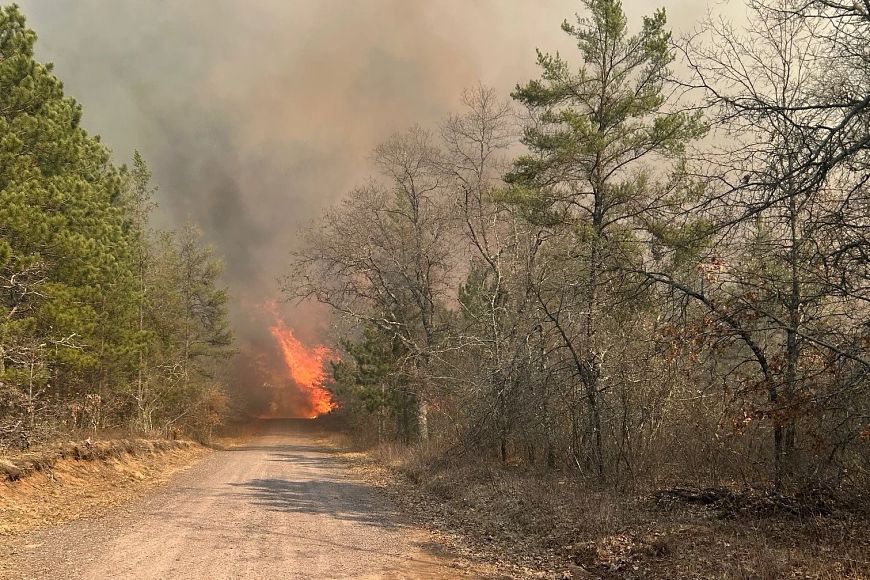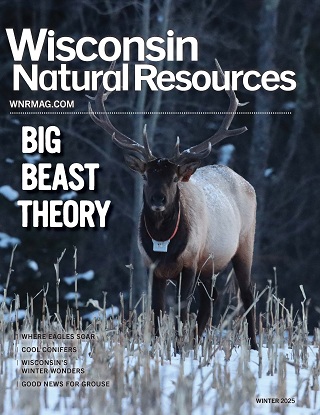Contact: DNR Office of Communications
DNRPress@wisconsin.gov
Wisconsin To Experience Increasing Fire Danger April 20-21
Please Avoid Burning Until Conditions Improve
 The Wisconsin DNR has responded to 122 fires this week – the most active wildfire week this season.
Photo credit: Wisconsin DNR
The Wisconsin DNR has responded to 122 fires this week – the most active wildfire week this season.
Photo credit: Wisconsin DNR
MADISON, Wis. – The Wisconsin Department of Natural Resources (DNR) again asks the public to stay vigilant and avoid outdoor burning this weekend, April 20-21, 2024, due to elevated fire danger.
Warm temperatures, low humidity and breezy conditions are in the forecast for this weekend. Although recent rain has improved conditions in some areas, much of the state's vegetation is still dead and dry.
Over the past week, the DNR has responded to 122 wildfires burning nearly 340 acres, the most active week this season. The majority of these recent wildfires have been related to debris burning and powerlines.
On windy, dry days, embers from any fire, especially burn piles and campfires, can easily escape control and cause a wildfire if not properly extinguished.
Wisconsin's wildfire season is expected to continue for several more weeks, with pine needles dropping in moisture and fires starting to move into tree crowns. These conditions can lead to faster, more intense fires that are difficult to suppress.
To help keep Wisconsinites safe, the DNR may suspend annual burn permits in counties within DNR protection areas where vegetation has yet to fully green up. If your property is outside the DNR's jurisdiction, please check with local authorities prior to burning. Check the DNR's website to learn if your property is within the DNR's jurisdiction.
Remember, weather conditions can change quickly, which means fire danger can change quickly, too. Always check before you burn – fire danger and burning restrictions change every day.
FIRE SAFETY TIPS
- Report fires early by calling 911.
- Avoid outdoor burning until conditions improve. Burn permits for debris burning may be suspended in several counties.
- Operate equipment (chainsaws, off-road vehicles, lawnmowers, etc.) early in the morning or late in the day to avoid sparks at peak burn hours.
- Secure dragging trailer chains to avoid creating sparks.
- Do not try to suppress a fire by yourself.
- Never operate drones/unmanned aircraft over or near fires – it endangers the lives of pilots and firefighters and interferes with fire suppression operations.
Check current fire danger, wildfire reports and burning restrictions on the DNR's website.
For a more comprehensive view of current fire activity, visit the DNR's wildfire dashboard.

